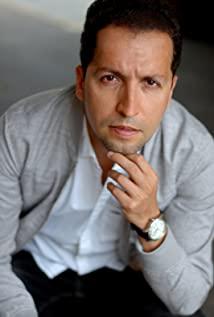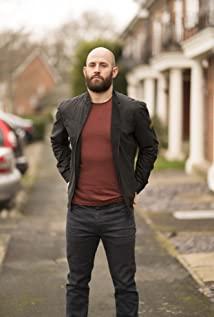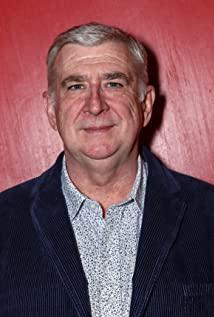This is one of the reasons why I like this movie. Many scenes in the movie are in line with my imagination at the time, and even some are beyond my imagination. In a fundamental sense, this is the advantage of the movie over the novel. .
Such scenes include but are not limited to: when
Poirot finally came to a conclusion, everyone was sitting in a row at the table, cleverly borrowing the composition and picture of "The Last Supper"; in the
flashback, the people involved in the Armstrong case sat together to watch The video clips of the little girl before her death, the black and white tone and the background of the relevant stories, are tragic and heartbreaking;
the clips of the murderer, everyone stabbed Cassetti with different emotions, either resentment or relief , all vented in one action;
and finally Linda Arden came out to confront, that monologue, with her expression and tone that once infected the whole New York, was very impactful; of
course, there was also the final slowdown of the train. The scene of slowly sailing towards the rising sun, which we will talk about later, is because there is no plot scene in the novel, it was added by the movie, and I think this innovation is completely in line with the original temperament, to some extent , even extending the original idea.
Some of the above scenes were completely in line with the scenes I had in my mind when I read the novel, while others were completely beyond my expectations, making me see something completely new in a familiar story, which means: the adaptation of the film, in the On the basis of respecting the original work, the film's advantages in scene construction have been fully utilized, giving fans of the original work an experience that can be called a surprise.
The second reason I like this movie is that although it has adaptations and changes in the storyline, it respects, maintains, and even extends the author's intentions in the core content of its essence.
This is reflected in the fact that in the original book, there is no plot of Poirot giving the gun to the crowd.
In the novel, Poirot, after knowing the truth of the matter, told everyone that there were two conclusions in this case. One conclusion was that the murderer had disappeared in the vast snowy field, and the other conclusion was that everyone killed Cassetti together, and then he asked Booker. , Which of the two conclusions he thinks is more likely to be the truth, Booker said, is obviously the first, so Poirot announces to everyone that the case is closed with the first conclusion, and then the novel ends.
In the movie, Poirot shot the gun on the table and said to everyone, "Booker can lie, but I can't Poirot, either you kill me, or I will expose the truth." At
this time, Linda Arden Picked up the gun, ready to commit suicide, but found no bullets in the gun.
Then in the midst of everyone's worries, Poirot provided the police with the first conclusion, and had a very profound monologue, which probably meant:
I used to think that everything was either right or wrong, but now I have to admit that in There is a third possibility besides right and wrong, and we must take into account the possibility that the balance between law and reason may also be unbalanced.
The content of this passage that is not in the original book, in my opinion, is not a playful addition, it reflects Poirot's discretion, and in this way, gives the audience time to accept this ending.
What Poirot was most worried about was that simply suppressing violence with violence would easily lead people to fall into the abyss of crime. If killing the criminals did not relieve the guilt, remorse, and hatred in their hearts, some of them had the pleasure of revenge, If he forgives the dangerous thoughts that dominate other people's lives and the contempt for social order and good customs, he will let the criminals who may appear in the future.
So he wants to test them whether they will go further and further into the abyss of crime. If one of them really shoots at him, it means that in order to cover up their crimes, they can kill people who have nothing to do with them, then, Their humanity has been wiped out.
And when Linda decided to commit suicide and everyone was terrified, Poirot knew that their rationality was still there, and they were willing to pay for what they did, so they might as well believe them.
Of course, Poirot is a very thief. He didn't put bullets in the gun. It doesn't seem that he has seen through the crowd. I think the main reason is that he is really afraid of being shot.
Facts have also proved that the train finally headed towards the sun, which implies that the group of people on the train achieved their own redemption and moved towards a bright new day. The ugly crime facts were left in the dark and cold snow field. The pain has not been made up, but after completing this thing, it can be regarded as masturbation, and everyone has no reason to fear the sun and rely on bipamine to survive (there is a clip of Mrs. Armstrong's sister draining bipamine) , the liberation of the liberation, the letting go of the letting go, everything is over.
And our detective Poirot went in the exact opposite direction by car. He gave them freedom and sunshine, and he himself had to face the darkness and cold.
All of these adaptations, although beyond the original, I think are more human and more natural. Language is a ventilated wall, and it is important to have all the words and endless meanings. Therefore, although the white space in the novel is high, the direct treatment of the film is also very attractive and touching.
As for my saying that the movie did not show one-tenth of Agatha's skills, it was because of Agatha's various foreshadowings that were not fully displayed in the movie, but this is understandable. The movie needs to speed up the pace, so some details must be There must be trade-offs.
Moreover, in order to allow enough time for the final confrontation, the progress of the surface of the case has also been deliberately accelerated, but having seen the final confrontation, I think this sacrifice may be worth it, after all, movies are different from novels, requiring more Strong dramatic.
But for Agatha's most important foreshadowing, the film still retains the inscription:
"This is suitable for the atmosphere of legend, my friend. The people around us, different classes, different nationalities, different age groups, three-day journey these people know each other come together under one roof in room and board, who can not leave, three days later, they went their separate ways, perhaps never to meet again. "
look back , simply the finishing touch.
At the end of the movie, Poirot said that he was going to the Nile, so we might as well expect that the movie will have a sequel, yes, that's right, Agatha's other masterpiece "The Massacre on the Nile".
And if Depp died so early, you wouldn't put him at the top of the cast, I thought Depp was playing Poirot. snort!
View more about Murder on the Orient Express reviews











